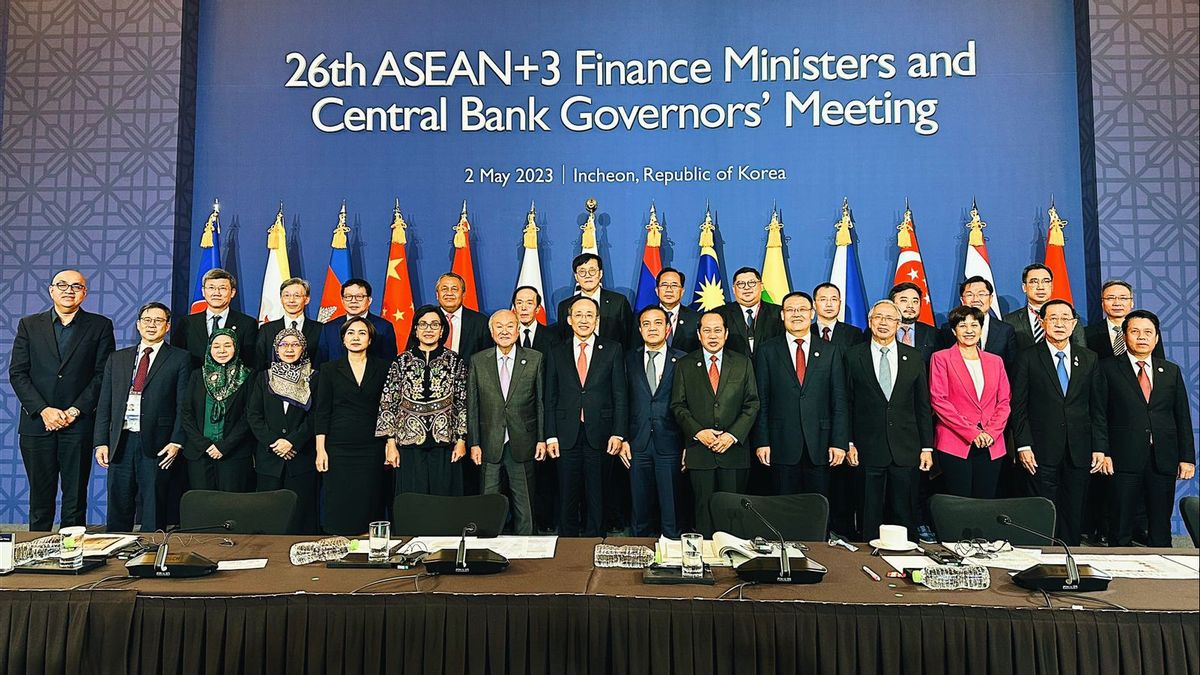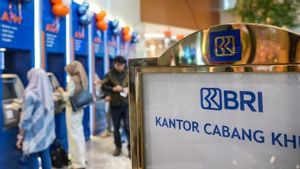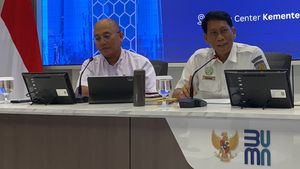JAKARTA Ministers of Finance and Governors of the Central Bank of ASEAN Member States+3 reaffirm their joint commitment to strengthening policy dialogue on the latest developments and global and regional economic prospects, as well as policy responses to future risks and challenges.
This was a joint statement released after a meeting in Incheon, South Korea earlier this week.
It was stated that the strategic agenda was held under chairmen (co-chairmanship) from Sri Mulyani Indrawati, Minister of Finance of Indonesia, Perry Warjiyo, Governor of Bank Indonesia (BI), Shunichi Suzuki, Minister of Finance of Japan, and Kazuo Ueda, Governor of the Bank of Japan.
Minister of Finance Sri Mulyani said ASEAN+3's strong economic growth was 3.2 percent in 2022, despite the effects of the existing COVID-19 pandemic and the Russia-Ukraine conflict which rose to crisis.
Meanwhile, the recent turmoil in the banking sector in the US and Europe has had a limited impact on the ASEAN+3 region.
"Nevertheless, we must remain vigilant. In the future, this area is expected to grow by 4.6 percent in 2023, driven by strong domestic demand because economic recovery continues to show improvement," he said in a written statement today, Wednesday, May 3.
On the same occasion, BI Governor Perry Warjiyo conveyed the current challenges and a large dependence on certain dominant currencies on international trade and investment settlement could increase vulnerability and increase the risk of financial stability in ASEAN+3.
"Therefore, ASEAN+3 needs to innovate to be able to maintain stability, in the midst of high inflation, tighter liquidity conditions, narrower policy spaces, and strong dollar influences," he said.
Gubernur Perry menekankan pentingnya memperkuat dan meningkatkan kerja sama antara negara-negara ASEAN+3 dalam konektivitas pembayaran dengan mempromosikan penggunaan mata uang lokal yang lebih luas untuk transaksi.
"In this regard, AFMGM+3 welcomes and recognizes the development of the cross-border payment system study at ASEAN+3, especially regarding the Strengthening of Local Currency Transactions in the discussion of ASEAN+3 Thematic Issues," he said.
Perry explained that ASEAN is aware of the need to reduce policy support related to COVID-19 while still implementing carefully calibrated policy measures to control inflation, maintain monetary and financial stability, strengthen key sectors, such as the green economy and the digital economy, ensure long-term fiscal sustainability, and promote strong, resilient, and sustainable growth.
"By considering these risks, AFMGM+3 recognizes the importance of collaboration towards strong and inclusive recovery and making sustainable progress on the 2030 agenda for sustainable development, to achieve stronger, greener, more resilient, and balanced global development," Perry said.
For information, the ASEAN region reaffirms its strong commitment to a multilateral regulatory-based trade system that is open, free, fair, inclusive, fair, transparent and non-discriminatory with the World Trade Organization (WTO) as its core and expresses support for increasing regional economic integration and implementation of the Regional Comprehensive Economic Partnership (RCEP) Agreement.
The English, Chinese, Japanese, Arabic, and French versions are automatically generated by the AI. So there may still be inaccuracies in translating, please always see Indonesian as our main language. (system supported by DigitalSiber.id)













